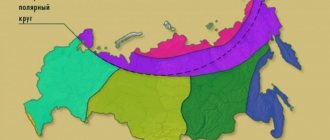Human and society. Miscellaneous tasks
Topic 2. Freedom
Article 3. Universal Declaration of Human Rights: “Everyone has the right to life, liberty and security of person.”
Personal integrity
- this is the first prerequisite (condition) of freedom.
| Liberty | |||
| natural human right | the highest value of human life | ideal (main idea) of liberals | one of the main components of the global standard of democracy |
| The desire for freedom is one of the most powerful human feelings. | |||
| The object of freedom is the criterion of social progress. | |||
Liberty
- this is a person’s ability to act in accordance with his interests and goals, based on the knowledge of objective necessity.
Conditions for the existence of freedom:
- A person makes a choice at his own peril and risk, i.e. freedom is inseparable from responsibility for one’s choice.
- The freedom of one should not harm the freedom and interests of another, i.e. freedom cannot be absolute.
| Freedom in human activity | |
| Relative freedom in external living conditions | Absolute freedom in inner life |
| Man is limited by natural conditions and social norms. There is no choice of objective operating conditions | In human activity there are no external obstacles to choosing a goal and means of achievement, i.e. a person must choose the goal himself, develop his abilities himself and direct this development in accordance with his desires and thoughts |
Topic 3. Equality
Article 1. Universal Declaration of Human Rights: “All human beings are born free and equal in dignity and rights.”
Social equality
- this is the presence of equal conditions and opportunities for the free development of abilities and satisfaction of the needs of all members of society, the same social position of people in society.
Equality
- this is a formally equal attitude of everyone to rights and laws, as well as a formally equal attitude of the law to everyone.
| Belief | |
| Conviction - faith | Belief - knowledge |
| Example: Giordano Bruno's belief | Example: Galileo Galilei's beliefs |
| Faith is a special type of belief. You can believe not only in God. Faith is not confirmed by practice, not justified by logic. It is impossible to completely replace faith with knowledge. | Knowledge is objective truth for the subject of knowledge. Knowledge is based on argumentation, evidence, logic, and reliable information. |
| Faith is a person’s psychological attitude, including hope and conviction that events can develop according to his assumption. | Knowledge is a practice-tested result of knowledge of reality, its true reflection in the human mind. |
Beliefs:
— Associated with deep and well-founded confidence in the truth of knowledge; - This is a firm look in which a person is confident; — Acts as a regulator of consciousness and behavior of the individual; — In addition to knowledge and confidence, it includes value orientations that guide activities. — Beliefs are formed by each individual independently.
Beliefs
- these are views that a person considers to be true, and their implementation is good.
Morality
Morality
- a special form of social consciousness, a set of moral norms that have received ideological justification in the form of the ideals of good and evil, justice and injustice.
Categories of morality: good and evil, honor and conscience, duty and justice, virtue, dignity, shame, truth, responsibility.
| Objectives of morality | ||
| Evaluation of phenomena, events, reality, and people’s actions. | Regulation of public relations | Raising the younger generation |
| Determining what is good and what is bad, what is good and evil, as well as the essence of ideals and values; ability to correctly assess public opinion | Directing the activities of man and society for humane purposes, for changing people and the world in accordance with the laws of goodness and justice | Influencing a person with the aim of developing his abilities, forming knowledge, skills, and a humanistic worldview. |
Morality
- this is a form of consciousness, a result, a product of thinking about life, affairs, and actions of people.
Morality
is the area of practical actions, practical behavior, real deeds and actions.
Ethics
are all moral norms (values) systematically stated.
| Differences between morality and law | |
| Moral standards | Rules of law |
| Appeared long before the emergence of the state | Formed and developed together with the state |
| Regulate all aspects of human life | Regulates the most important, life-supporting sphere of social relations |
| Formed by people and express the opinion of society | Established and fixed by the state and express the will of the state |
| Exist and act as a set of unwritten rules in the form of teachings and parables | Formed in writing in sources of law: in regulations, regulatory agreements, etc. |
| They are of an evaluative, subjective nature and apply to certain groups of people. | They have a specific wording, are formally defined, and are binding on all citizens of the state |
| Make demands on actions, thoughts and feelings | Regulates only the actions of people |
| Supported by the power of public opinion | Ensured by the power of state coercion |
General signs of morality and law
- Regulate social relations (people's behavior);
- Contribute to the stability of society;
- They are elements of the culture of the people.
Education
Education
- a purposeful process of education, training and development in the interests of the individual, society and the state.
The goal
is to introduce the individual to the achievements of human civilization, relay and preserve its cultural heritage.
| Functions of education | |
| Function name | Function Contents |
| Professional and economic |
|
| Social |
|
| Cultural-humanistic |
|
| Political-ideological |
|
Forms of education: full-time, part-time (evening), part-time, self-education, external education, family education.
Principles of development of modern education
- humanization of education
- great attention of society to the individual, his psychology, interests; focusing efforts on the moral education of a person; changing the relationship between students and teachers, creating an accessible educational environment for people with disabilities; - humanitarization of education
- increasing public attention to the study of social and humanitarian disciplines that are of paramount importance in the life and activities of modern man; - internationalization of education
- the creation of a unified education system for different countries, i.e. ensuring the compatibility of various forms and systems of education in different countries, strengthening the academic mobility of students and teachers; - specialization of education
- early vocational guidance, the possibility of in-depth study of individual subjects necessary for further professional activity; - informatization of education
- the use of computers, information and communication technologies in the educational process, the use of wide information resources; - continuity of education
– education throughout a person’s life, which is associated with the development of scientific and technological progress, with the need to constantly update one’s knowledge in order to be an active member of society and a competitive specialist.
The education system of the Russian Federation includes educational levels:
Preschool education
— nursery, kindergarten;
General education
includes three steps:
- Primary general education (grades 1–4), basic general education (grades 5–9), secondary general education (grades 10–11).
- The main goal of general education is the transfer of a minimum of general and specialized knowledge necessary for the normal adaptation of a person to social life;
Vocational education
It has the following steps:
- Primary (vocational schools, lyceums), secondary (technical schools, colleges), higher (institutes, universities, academies), postgraduate professional education.
- The purpose of vocational education is the formation of specialists in a certain field of professional activity;
Additional education
- Serves for the development of the creative and sports potential of the individual, contributes to the improvement of personnel qualifications. (Music schools, sports schools, children's art centers, etc.)
Religion
Religion
- a special form of social consciousness based on belief in the supernatural, which includes a set of moral norms and rules of conduct, rituals, religious activities and the unification of people in organizations (church, religious community).
Religion
- the oldest form of culture.
| Elements of religion | ||
| Worldview based on faith in God | Cult is a type of religious activity, religious worship of supernatural forces; ritualism. For example, bows, rituals, the sign of the cross, hajj. | A religious organization, which is based on a creed that determines religious ethics and activities, a system for managing the life activity and behavior of believers. |
Reasons for the emergence of religion:
- Man's powerlessness and fear of the forces of nature.
- Lack of knowledge to explain natural phenomena.
- A person’s attempt to influence nature and other people.
Early forms of religious beliefs:
Magic
is the belief in the existence of supernatural connections and relationships between humans and things, animals, spirits, established through a certain type of religious activity with the aim of having a desired impact on the world around them.
Fetishism
is the belief in the presence of supernatural properties in inanimate objects (amulets, talismans, signs of the Zodiac).
Totemism
is the belief in the existence of a relationship between an animal or plant and the human race.
The totem animal was not worshiped, but it was forbidden to hunt it, its meat was not eaten, it was considered an ancestor helping its descendants. Animism
is the belief in spirits and souls that exist in objects and independently of them (for example, the spirits of mountains, rivers, lakes or stones, trees, etc.) During the formation of nations,
national-state religions
, forming the basis of the religious life of individual nations : Judaism among the Jews, Shintaism among the Japanese, Hinduism among the Indians.
The emergence of multinational empires as a result of conquests contributed to the emergence of world religions:
Buddhism, Christianity (Catholicism, Orthodoxy, Protestantism); Islam.
World religions
| BUDDHISM | |
| Time and place of origin and spread | Benares, Hindustan Peninsula, 6-5 centuries. BC e. Distribution: Burma, China, Vietnam, Korea, Japan. Religious community - sangha |
| Name of the prophet, name of the holy book | Buddha (enlightened) Tipitaka |
| Basic ideas of religion | 1. Life is suffering, caused by the passions and desires of people. To get rid of suffering, you need to give up desires. 2. The idea of transmigration of souls. 3. One must strive for nirvana. |
| CHRISTIANITY | |
| Time and place of origin and spread | Palestine, 1st century. n. e. Worldwide distribution. Religious organization - church: Orthodoxy, Catholicism, Protestantism |
| Name of the prophet, name of the holy book | Jesus Christ (messiah, anointed one) Bible |
| Basic ideas of religion | 1. The idea of monotheism - God is one, appears in three persons: God the Father, God the Son, God the Holy Spirit. 2. The idea of messianism: Christ was sent by God to save people. 3. The idea of the end of the world - the death of the world as a result of divine intervention. |
| ISLAM | |
| Time and place of origin and spread | Hijaz, Arab Caliphate, 7th century. n. e. Distribution: Middle East, Central Asia, North Africa, North Caucasus, Transcaucasia. A religious community is an ummah. |
| Name of the prophet, name of the holy book | Muhammad (Mohammed) Koran |
| Basic ideas of religion | 1. Strict monotheism. There is one God - Allah - omniscient and omnipotent. He created the world and rules it. 2. Muhammad is his messenger. 3. Allah has prepared his own destiny for everyone; the believer is required to submit to the will of Allah. 4. Everyone is equal before Allah: both the poor and the rich. 5. Does not make national distinctions, distinguishes three statuses of a person: true believer, protected, pagan. 6. The idea of the end of the world and the onset of Judgment Day. |
Functions of religion in the life of modern society:
— worldview: creates a religious picture of the world;
- compensatory: compensates for the limitations, dependence, powerlessness of people; — religious consolation: suffering, the road to heaven; — normative: regulates people’s behavior, establishing commandments and regulations that are mandatory for believers; — promotes the development of the culture of society: writing, printing, art, and also transfers the accumulated heritage from generation to generation; - unites society or some large social groups; - is a way of sanctifying and strengthening power. The Constitution of the Russian Federation guarantees all citizens the right to freedom of conscience and freedom of religion. This means that every person has the right to profess any religion or not to profess any, to freely choose, have and disseminate religious and other beliefs and act in accordance with them, subject to compliance with the laws. In the Russian Federation, the church is separated from the state.
This means: 1. The state does not interfere in a citizen’s determination of his attitude to religion and religious affiliation.
2. Parents have the right to raise their children in accordance with their convictions, but taking into account the child’s right to freedom of conscience and religion. 3. The state does not assign religious organizations to perform the functions of state authorities, state institutions and local self-government. 4. The state does not interfere in the activities of religious associations unless they contradict federal law. 5. The state ensures the secular nature of education in state and municipal educational institutions. In turn, religious associations: 1. Do not interfere in the affairs of the state; 2. Do not participate in elections to state and local government bodies; 3. Do not participate in the activities of political parties and political movements; 4. They do not provide them with material or other assistance. Atheism
is a system of views and beliefs that deny the existence of God and supernatural forces.
Free thinking
is the human right to freely and critically examine religious ideas, the activities of religious organizations, and the actions of believers.




